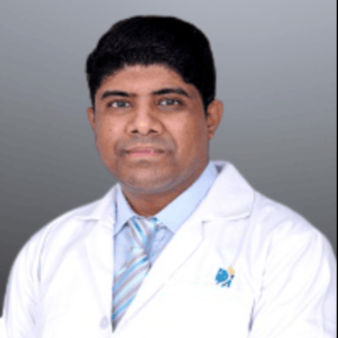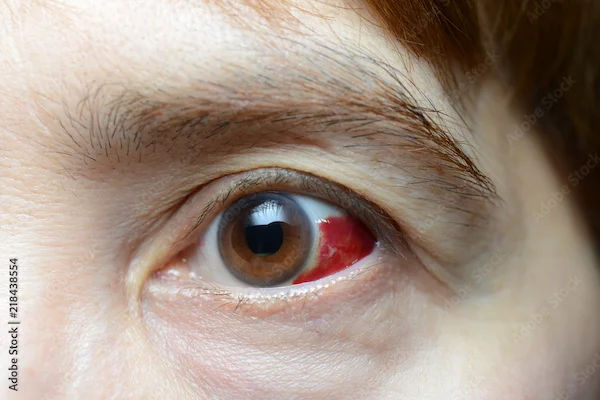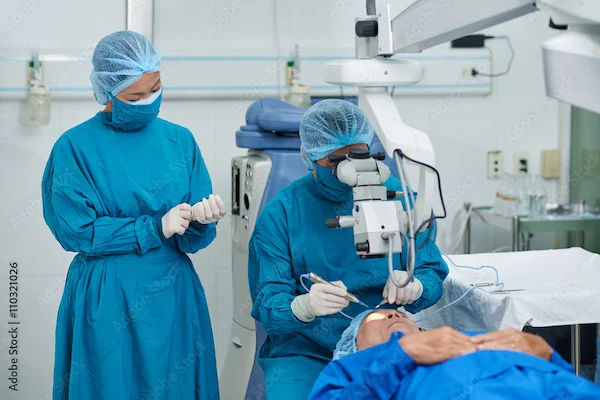Should You Sleep With Your Head Elevated After Cataract Surgery
Wondering if you should sleep with your head elevated after cataract surgery? Learn why proper sleeping posture can support healing and reduce post-op complications.

Written by
Last updated on 3rd Jul, 2025

Introduction
Cataract surgery is a common and generally safe procedure that helps restore clear vision by replacing the cloudy lens in your eye with an artificial one. While the surgery itself is quick, the recovery period is crucial for ensuring the best possible outcome. One common question patients have is whether they should sleep with their head elevated after cataract surgery. Let’s explore this in detail to help you recover comfortably and safely.
Why Is Post-Surgery Care Important?
After cataract surgery, your eye needs time to heal. Proper care helps prevent complications like swelling, increased eye pressure, or accidental rubbing of the eye while sleeping. Following your doctor’s instructions carefully will ensure a smooth recovery.
Should You Sleep With Your Head Elevated?
Yes, sleeping with your head slightly elevated (at about a 30-45 degree angle) for the first few nights after cataract surgery is often recommended. Here’s why:
1. Reduces Swelling: Elevating your head helps minimise fluid buildup around the eye, reducing swelling.
2. Prevents Pressure on the Eye: Lying flat may increase pressure in the eye, which could slow healing.
3. Avoids Accidental Rubbing: Keeping your head propped up can help prevent you from rolling onto the operated side while sleeping.
To Know More Consult Top Ophthalmologists
How to Elevate Your Head Properly?
Use an extra pillow or a wedge pillow to keep your head raised.
Avoid sleeping on your stomach or the side of the operated eye.
If you move a lot in your sleep, consider using a travel pillow to keep your head in place.
Other Important Post-Surgery Tips
Besides elevating your head, here are some additional ways to ensure a smooth recovery:
1. Wear an Eye Shield
Your doctor may provide a protective shield to wear while sleeping for the first few nights. This prevents accidental rubbing or pressure on the eye.
2. Avoid Strenuous Activities
For the first week, avoid heavy lifting, bending over, or any activity that strains the eyes.
3. Use Prescribed Eye Drops
Follow your doctor’s instructions on using antibiotic and anti-inflammatory eye drops to prevent infection and reduce swelling.
4. Protect Your Eyes from Irritants
Avoid swimming or hot tubs for at least two weeks.
Wear sunglasses outdoors to protect your eyes from bright light and dust.
5. Don’t Rub Your Eyes
Even if your eye feels itchy, avoid rubbing it, as this can disrupt healing.
When Can You Return to Normal Sleeping Positions?
Most patients can return to their usual sleeping position after the first 3-4 days, but always follow your doctor’s specific advice. If you experience discomfort or swelling, continue elevating your head until it subsides.
When to Seek Medical Help?
While complications are rare, contact your doctor immediately if you notice:
Severe pain or sudden vision loss
Increased redness or swelling
Flashes of light or floating spots in your vision
Conclusion
Sleeping with your head elevated after cataract surgery helps promote faster healing and reduces discomfort. Combined with other post-surgery care tips, you’ll be on your way to clear vision in no time!
If you have any concerns or need personalised advice, don’t hesitate to consult your eye specialist. You can easily book a follow-up consultation or schedule an eye check-up through Apollo 24|7 for expert guidance.
Consult Top Ophthalmologists
To Know More Consult Top Ophthalmologists

Dr. Sujit Pahari
Ophthalmologist
22 Years • MBBS, DNB, DOMS Ophthalmologist/ Eye Surgeon. FIC (Ophthal).
Bilaspur
Apollo Hospitals Seepat Road, Bilaspur
Dr. Padmini S
Ophthalmologist
4 Years • MBBS,MS
Bengaluru
Apollo Medical Center, Marathahalli, Bengaluru

Dr. Rajeev Gupta
Ophthalmologist
24 Years • MBBS, MS (Ophthalmology)
Ghaziabad
Om Eye & Gynae Centre, Ghaziabad
Dr. S Venkateswaran
Ophthalmologist
35 Years • MBBS, PGD (OPTHALMOLOGY)
Tiruvannamalai
Shiva Eye And General Hospital, Tiruvannamalai

Dr. Atheeshwar Das
Ophthalmologist
15 Years • MBBS,DO,DNB(Gold Medal),FRCS(Glasgow),FICO(UK),
Chennai
Apollo Speciality Hospitals OMR, Chennai
Consult Top Ophthalmologists

Dr. Sujit Pahari
Ophthalmologist
22 Years • MBBS, DNB, DOMS Ophthalmologist/ Eye Surgeon. FIC (Ophthal).
Bilaspur
Apollo Hospitals Seepat Road, Bilaspur
Dr. Padmini S
Ophthalmologist
4 Years • MBBS,MS
Bengaluru
Apollo Medical Center, Marathahalli, Bengaluru

Dr. Rajeev Gupta
Ophthalmologist
24 Years • MBBS, MS (Ophthalmology)
Ghaziabad
Om Eye & Gynae Centre, Ghaziabad
Dr. S Venkateswaran
Ophthalmologist
35 Years • MBBS, PGD (OPTHALMOLOGY)
Tiruvannamalai
Shiva Eye And General Hospital, Tiruvannamalai

Dr. Atheeshwar Das
Ophthalmologist
15 Years • MBBS,DO,DNB(Gold Medal),FRCS(Glasgow),FICO(UK),
Chennai
Apollo Speciality Hospitals OMR, Chennai

.webp)
.webp)

